The Independent's journalism is supported by our readers. When you purchase through links on our site, we may earn commission.
The Body Shop closing is like I’m saying goodbye to my friend Anita all over again
This week’s news that the iconic beauty shop was shutting was met with a wave of nostalgia, but for those like Lynne Franks who knew the founder well, it really hit home. Here, she explains what Anita Roddick meant to her – and what she would have thought about the chain’s collapse
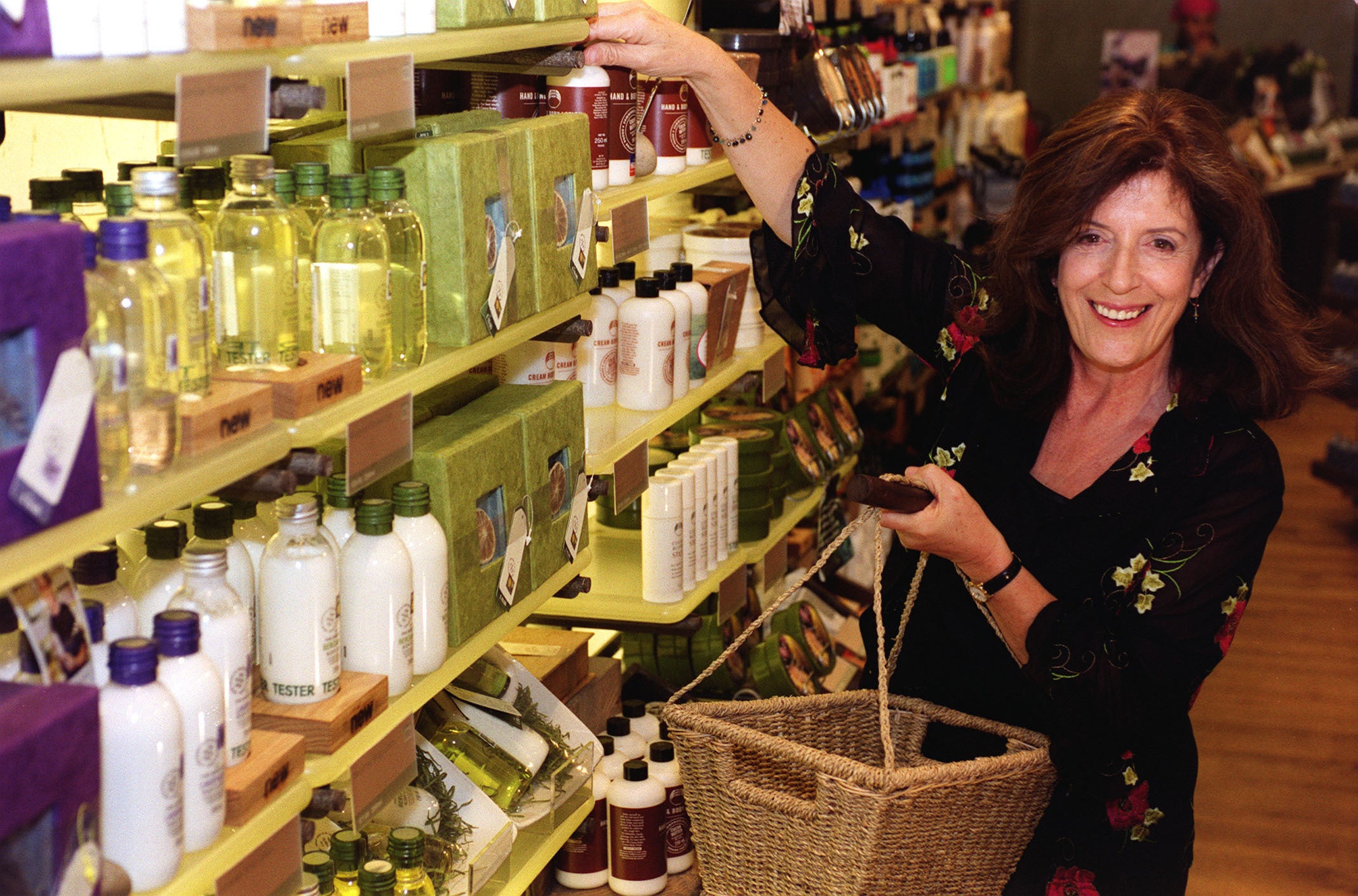
Anita Roddick’s husband, Gordon, always used to say that no one could ever get a word in when Anita and I were in a room together. It always made me laugh and was probably quite true. Back then, we were both mouthy brunettes, passionate about the things we believed in and in a hurry to change the world.
We looked quite like each other too, with similar tastes in clothes – although she had her trademark wild Italian curls which added to her look.
We first bumped into each other on the same women’s conference circuit in the late Eighties, encouraging other women to start businesses based on feminine values. By then, she had watched the shop she first opened in 1976 turn into an enormous global business.
She was far more successful and powerful than me, but she was still committed to supporting others trying to bring their dreams to life. The idea of working in a business with purpose is all-pervasive today, but Anita was an early pioneer.
All of her packaging was recyclable or biodegradable, and her cruelty-free products had quickly become iconic. In those days, a teenage girl’s bathroom cabinet was not complete without some White Musk and peppermint foot lotion.
We got to know each other better when we showed up at the same retreats run by Social Venture Network – a visionary business group started by Anita and her friend Ben Cohen of Ben & Jerry’s ice cream.
Together with a small number of other socially conscious entrepreneurs such as Craig Sams and Jo Fairley, the founders of Green & Black’s chocolate and the founders of Whole Foods supermarkets, they wanted to show how by using ethical values in business, you could make a real difference to society.
I liked buying presents for myself and others, but it was their campaigns that really stood out. I remember having a conversation with Anita once on the image of the company, suggesting that the shops should maybe focus on the natural beauty of women of all ages throughout the world. Maybe, I said, she should run her political activities separately.
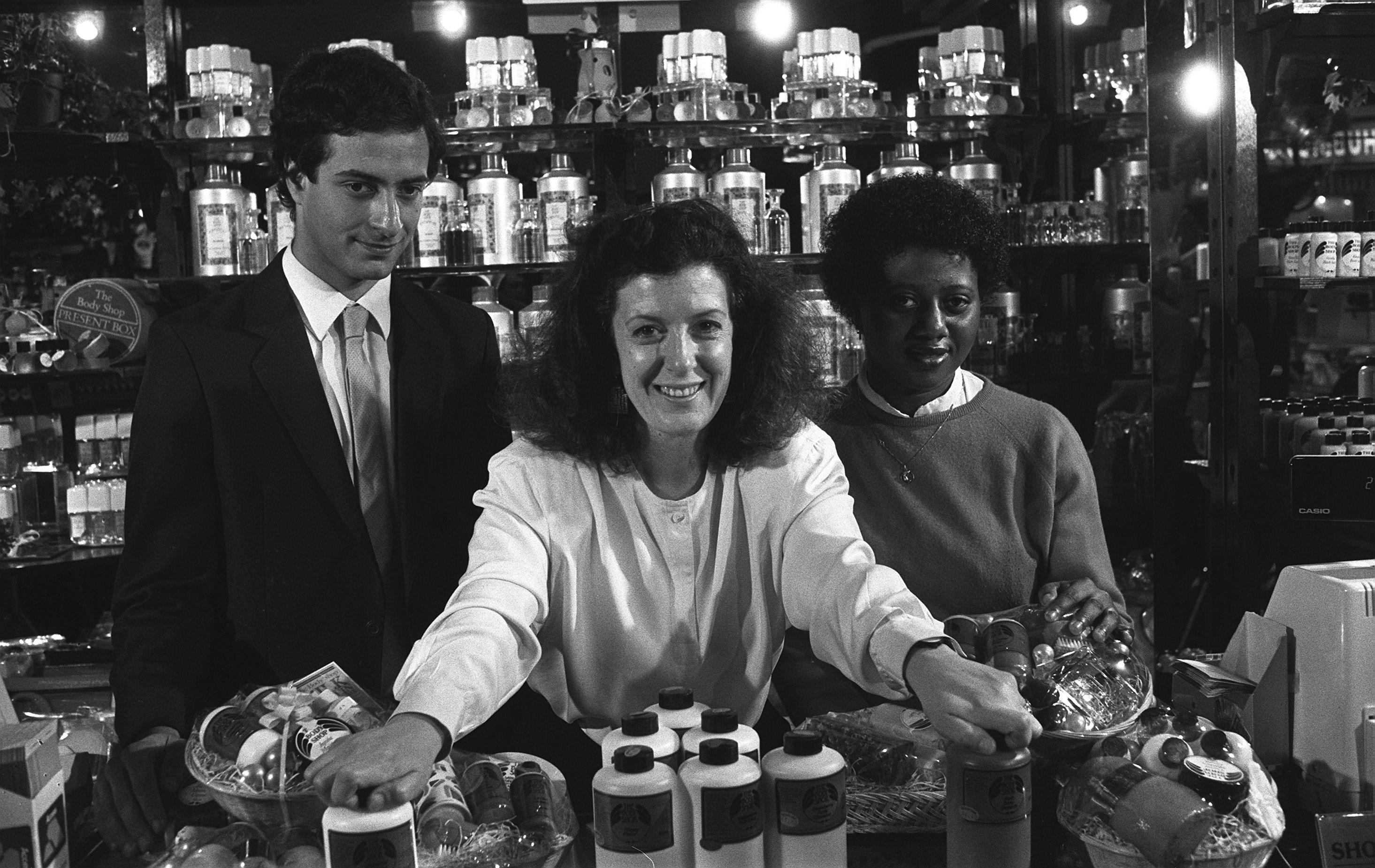
But that was never going to happen. She stuck to her guns and showed the rest of us how you could easily meld business with activism. Using beauty as a platform for her other beliefs was a genius move that made others want to get involved.
Anita was simply a force of nature – driven by passion, activism, and kindness. She was also one of the busiest women I knew. She was constantly travelling the world looking for resources to incorporate into her natural toiletries, which would benefit the communities who grew them. She would be doing this at the same time as launching her many books, spreading ideas, and learning from others such as indigenous tribes and people living in extreme poverty. And all the while, she would be spending time trying to support the global Body Shop staff who adored her.
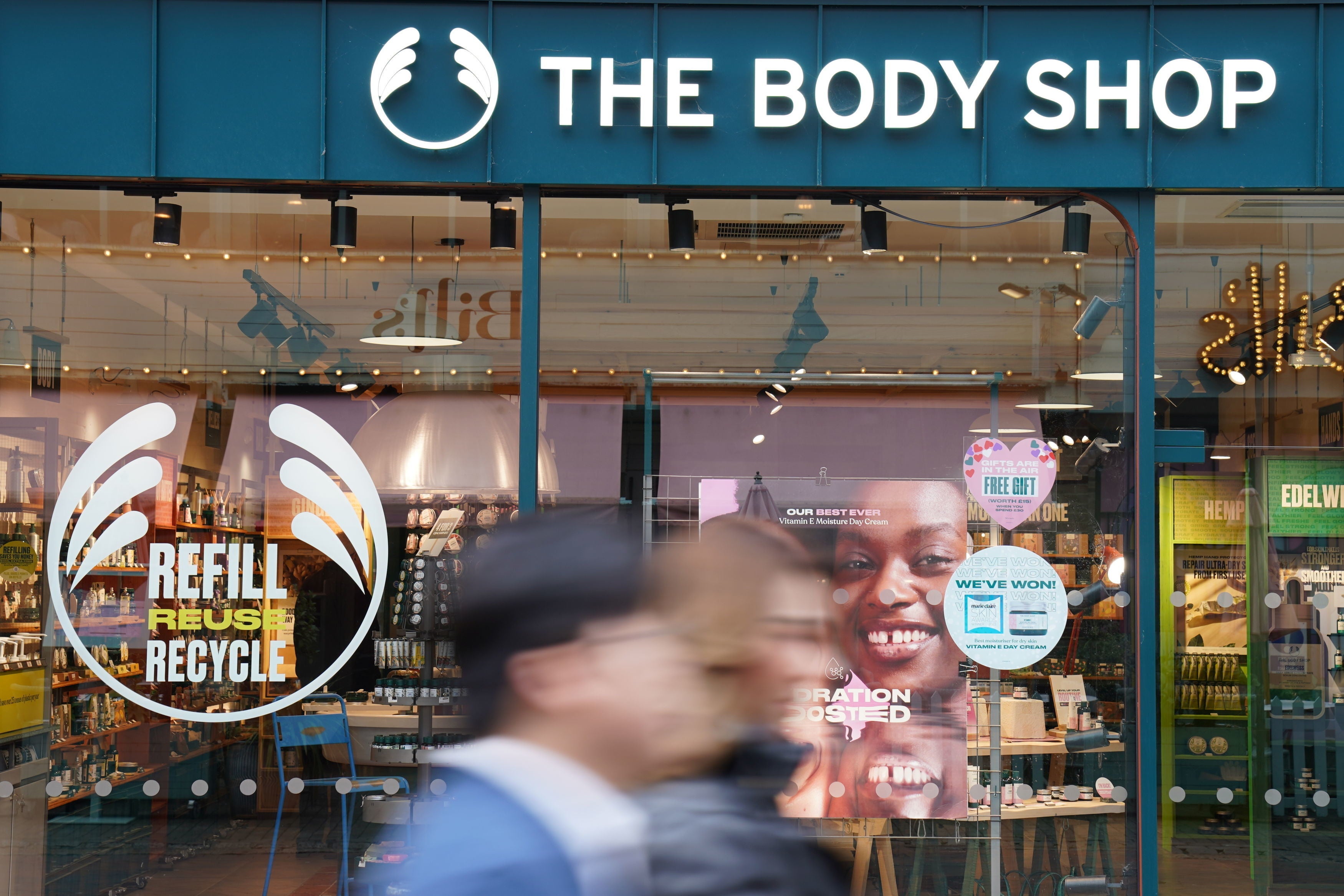
Anita was also one of those people who you could count on “turning up”. She came to my aid when I was planning What Women Want, a huge conference and concert for women at the South Bank in 1995. I had left my eponymous PR agency and had no funding or staff other than my 14-year-old daughter and a part-time PA. I had managed to persuade the late, great Sinead O’Connor to head up a concert at the Festival Hall with Chrissie Hynde, Jo Brand, Germaine Greer, and Sarah-Jane Morris.
Seeing my plight, Anita financed and printed up enormous posters advertising the event in the Body Shop colours of green, purple, and white (also the colours of the Suffragettes) which were posted all over her UK stores. She also arranged for her therapists to offer foot and shoulder massages to the thousands of exhausted women who showed up to the event.
I would never say Anita was particularly spiritual; I think she always thought I was a lot more of a New Age hippy than she was. But she was a humanist through and through and had huge empathy with indigenous people and their ancient ways. I learnt a lot from her, and despite often being exhausted, there was always someone else’s plight she wanted to raise awareness of. This is what drove her.
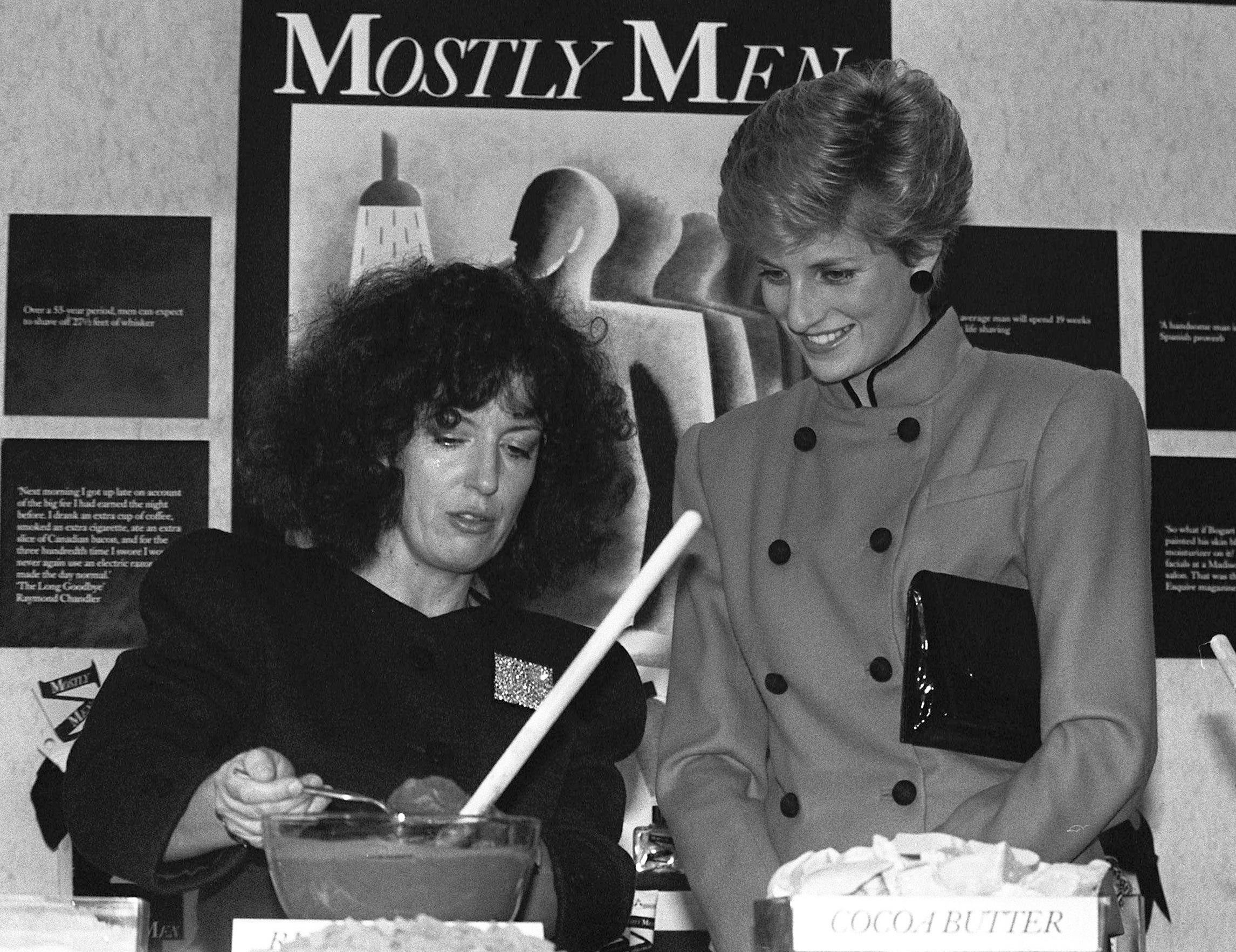
It was through her that I learned about the terrible situation regarding the Ogoni people in Nigeria. Their tribal land was full of oil, and Shell was involved in the environmental damage suffered by the group. She was close with the family of activist and writer Ken Saro-Wiwa, who was murdered along with a number of others by the Nigerian military tribunal and created a powerful global campaign through her shops to highlight the situation. Supporting campaigns like this really made us understand the power of consumer activism.
Anita was also a huge critic of animal testing in the cosmetic industry and was appalled when one of her labs was revealed to be practising this horrible research without her knowing. I think this was one of her most upsetting moments in her career, but she came through with her usual strength and courage.
She also hated the patriarchal style of doing business, immensely regretting becoming a public company in 1984 and how she had to change her behaviour to suit the men in the City. She was angry to find herself under the control of shareholders and spent a lot of time and money getting her business back.
Anita was simply a force of nature – driven by passion, activism and kindness. She was also one of the busiest women I knew
In 2001, we were both doing book tours in Australia and New Zealand and managed to find a couple of hours to meet up in an Auckland Hotel. This was when she first told me how exhausted she was and how her doctor had warned her that she could have serious health issues if she didn’t slow down. She looked worried but believed she had so much more to do. She just didn’t have time to stop, much to her family’s concern.
Anita was the DNA of The Body Shop, and looking back now, I wonder if warnings of her bad health were really why she sold her business to L’Oreal in March 2006 for £625m. I remember her being very defensive about the sale and she told me that they had committed to bringing all the Body Shop values on human rights and the environment into their business and how that would make a real difference to the world. Sadly, their promise to her never became evident.
Anita didn’t believe in inherited wealth and once told an interviewer that her great fear was ending up like Estee Lauder. She kept true to her commitment to leave all her wealth to charity, which she did when she tragically and prematurely died aged 64 in September 2007. She had a brain haemorrhage as she had been warned so many years earlier – apparently as a result of getting hepatitis C 30 years previously in the contaminated blood scandal that affected so many innocent people.
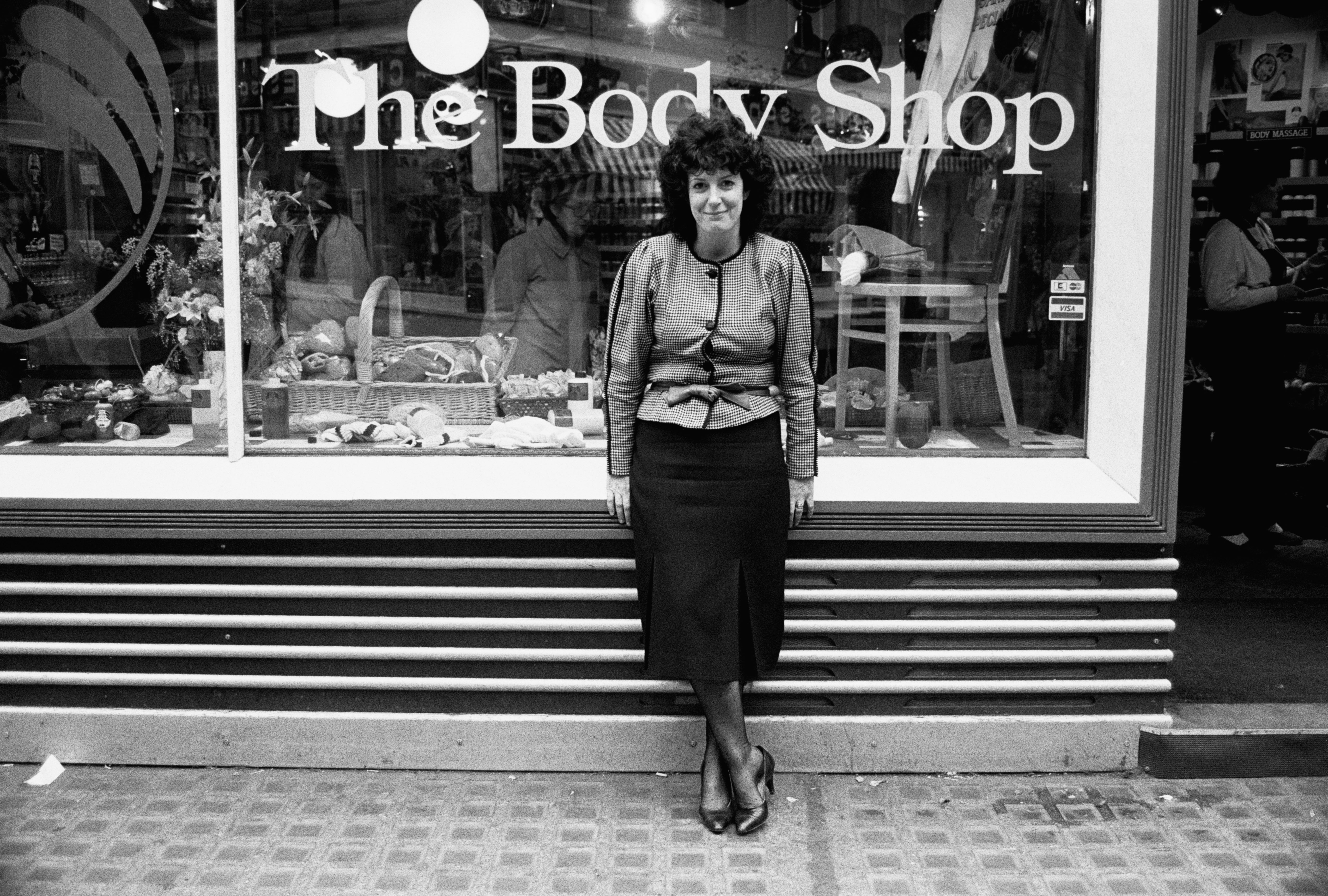
I believe that she was in such a hurry to change the world for the better that her body just couldn’t keep up. Her memorial service was full of hundreds of her friends and family and, as always, on message. We were all handed a rain poncho with the words “I am an activist” written on it, and we walked together in Anita’s name from Trafalgar Square across the Thames in protest of all the injustices of the world.
So, the news that The Body Shop went into administration last week was heartbreaking. There are still over 900 stores in 20 countries, and 22,000 jobs are now at risk after the private equity owners who had bought the company for £207m called in the administrators. Anita would have hated that her beloved business had been sold to an uncaring private equity company who had no idea how to run it.
I miss her presence on the global stage, as much as I do her being there as a supportive friend. Her dying so young was a terrible tragedy, and the closure of The Body Shop reminds me just how big the loss is and how badly the world needs people like Anita in it right now.
Lynne Franks is the founder of The Seed Network, a foundation for a new sustainable way for women to work and connect





Join our commenting forum
Join thought-provoking conversations, follow other Independent readers and see their replies
Comments